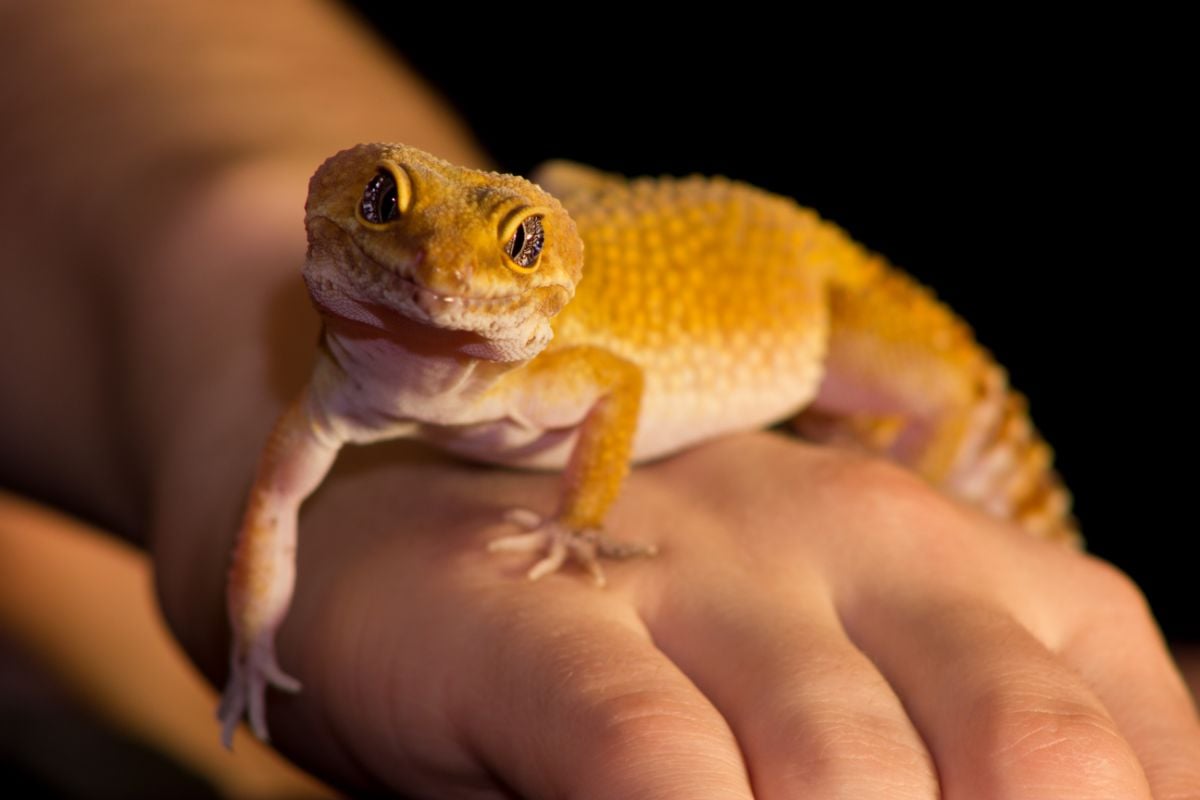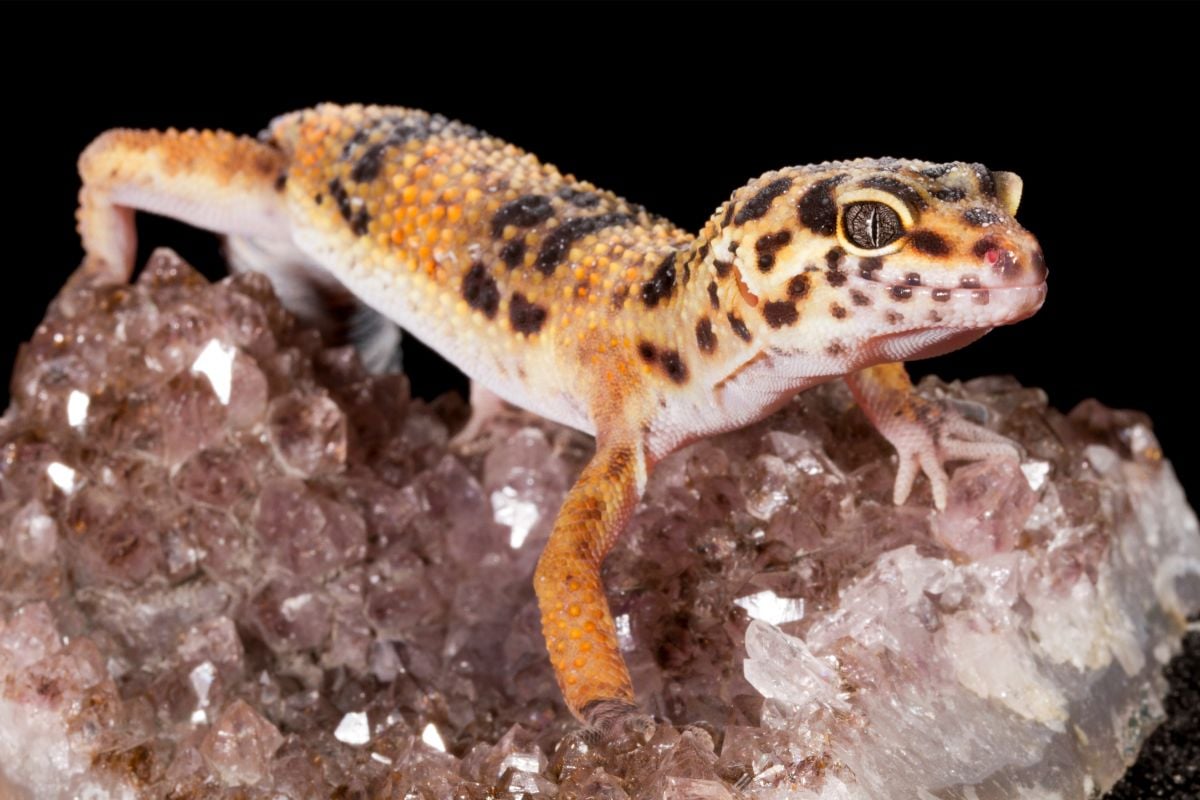Leopard geckos are among some of the most popular pet geckos because they make for perfect beginner reptiles for those that may not have cared for reptiles before.

Leopard geckos are incredibly low maintenance and don’t require too much dedicated care. And they also boast that amazing leopard pattern on their backs that helps to make them look incredibly exciting.
If you are caring for a leopard gecko yourself, or you are simply interested in the species, you’ve likely found yourself on this very website because you are looking to find out if leopard geckos can eat fruit.
If you’ve ever found yourself trawling the web for answers, then you will love the guide we have collated down below, which will take you through all you need to know about the dietary needs of leopard geckos, and whether they can eat fruit!
Can Leopard Geckos Eat Fruit?
Technically speaking, leopard geckos can eat fruit, but they do not have the organs needed to digest fruit, and thus it provides them no benefits whatsoever, and can just lead to them being full!
Unfortunately, leopard geckos should not eat fruit, because they lack the capabilities to digest fruit and all of its nutrients and minerals. As such, you should avoid feeding your leopard gecko any amount of fruit, lest you want to cause it any harm!
Is Fruit Harmful To A Leopard Gecko?
Though leopard geckos do not need to eat fruit, and lack the capacity to digest its nutrients, the fruit itself will not necessarily be harmful or poisonous to them.
If your leopard gecko were to somehow get its hands on some fruit and begin eating it, you needn’t worry about any health risks.
Despite this, you should avoid feeding fruit to leopard geckos because it would be counted as empty calories, and thus they would be too full to eat any insects that would provide nutrients.
Why Do Leopard Geckos Not Eat Fruit?
The reason why geckos don’t need fruit to survive is that they live entirely on a carnivorous diet, as they eat insects!
Geckos do not possess functioning Cecums, which is a small organ that is used to digest cellulose, which is a substance that is found in abundance in fruit and vegetables.
Leopard geckos would never ordinarily favor fruit if they had the choice, because they have a very short digestive tract, and thus they only have enough capacity to eat a small number of insects.
Leopard geckos would prefer to dedicate that space to insects that have the nutrients they need to survive.
If you were to observe a leopard gecko eating fruit, it is most likely simply because the fruit is the closest available food source when the leopard gecko is hungry, and thus they will begin snacking on it.
Can Leopard Geckos Eat Vegetables?
Much like fruit, vegetables are not poisonous to leopard geckos, but they provide no nutritional benefits to them, thus they would not favor them in the wild unless options were truly scarce.
If you own a leopard gecko, there is no reason to prepare vegetables for it, as it will receive very little from eating it.
Can Leopard Geckos Become Obese?

Definitely. And you will want to do your absolute best to monitor the diet of any leopard geckos you are caring for so as to prevent them from becoming obese, as it can happen very easily and very quickly.
The reason why leopard geckos are so prone to obesity is a result of their ordinary habitat in South-eastern Asia. The natural habitat of the leopard gecko is a space that is very warm and dry, and there is often very little food around.
Thus, the digestive systems of leopard geckos actively seek to convert a high percentage of food into body fat so that they have more energy reserves to survive.
However, leopard geckos also simply enjoy the sensation of eating and they have insatiable appetites! Thus, when in captivity, where their food is provided for them, it can be very easy for leopard geckos to simply keep eating non-stop!
As such, you will want to make sure that you carefully monitor and control the amount of food you feed to any leopard geckos you may be caring for.
If you want to check to see if a leopard gecko is obese, you will want to make sure that the tail is always wider than the body of the gecko.
If the body appears wider than the tail, then it is likely that the leopard gecko is obese! Make sure not to check just after eating, as leopard gecko stomachs naturally expand as they eat!
Are Any Foods Poisonous To Leopard Geckos?
Though leopard geckos thrive on a diet of insects, there are specific insects that they should not eat!
You should avoid ever feeding a leopard gecko any insects that light up. Insects like fireflies are incredibly toxic to all gecko species, and should be avoided at all costs.
The chemicals that cause these insects to illuminate are incredibly toxic to geckos.
Frequently Asked Questions
If a leopard gecko is not able to digest fruit after eating it, then it will likely regurgitate it and throw it up!
Leopard geckos cannot eat any human foods, as they live entirely on insect diets!
Geckos are some of the only reptiles that respond well to being touched, so if you are caring for any geckos, make sure to shower them with plenty of love and affection.
To Wrap Up
As you can now see, leopard geckos technically can eat fruit, but it provides them with no nutritional value whatsoever.
Leopard geckos do not have Cecums, which are small organs that help to digest cellulose, a compound that shows up in abundance in both fruit and vegetables!
If you are caring for a leopard gecko, make sure to feed it on a stable diet of insects, while being careful not to overfeed it, or to feed it any insects known to glow or light up, as those are highly toxic!
- Can Leopard Geckos Eat Silkworms? - March 11, 2024
- Do Leopard Geckos Climb? - March 4, 2024
- Do Leopard Geckos Bask? The Answer Will Surprise You - February 21, 2024
